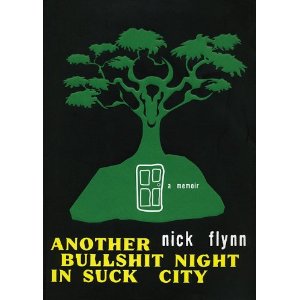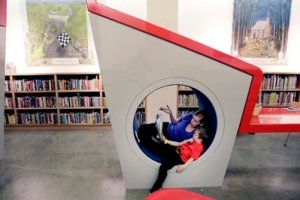
 There was a period of time when I allowed myself only to read women writers. I devoured Virginia Woolf, E. Annie Proulx, Amy Hempel, and Toni Morrison. I was reading (and still do) a lot of the astute, original, and, in an eggheady kind of way–loopy–writing of Lydia Davis. For some reason, I felt some sexist part of me gravitated to male writers.
There was a period of time when I allowed myself only to read women writers. I devoured Virginia Woolf, E. Annie Proulx, Amy Hempel, and Toni Morrison. I was reading (and still do) a lot of the astute, original, and, in an eggheady kind of way–loopy–writing of Lydia Davis. For some reason, I felt some sexist part of me gravitated to male writers.
I like that I forced myself to consciously choose women writers; I’m somewhat disappointed that I had never assessed my choices. Does the gender of a writer make a difference to you?
Flavorwire published a slideshow of their favorite female writers, including Sarah Vowell (pictured above), who (whom?) I adore. She’s a regular contributor to This American Life, of course, but I like the fact that book-length essays allow her the room to showcase her wide-ranging knowledge and her wry voice. Flavorwire’s lovefest for Vowell:
7. Sarah Vowell
Why we love her: Vowell validates our inner history geek. She was also the voice of Violet in The Incredibles.
Best known for: Assassination Vacation
; The Partly Cloudy Patriot
; Take the Cannoli
The line that made us fall for her: “Once I knew my dead presidents and I had become insufferable, I started to censor myself. There were a lot of get-togethers with friends where I didn’t hear half of what was being said because I was sitting there, silently chiding myself, Don’t bring up McKinley. Don’t bring up McKinley.”
Vowell is one-of-a-kind smart. Self-effacing, with one of those hard-to-believe life stories (she makes growing up in Montana as hilarious as David Sedaris makes growing up in South Carolina), Vowell is only one on this list of remarkable women writers. I’m a big fan of the fiction of Barbara Kingsolver and Aimee Bender, who also grace the list.
Filed under: literature, women, amy hempel, book, female, fiction, literature, lydia davis, sarah vowell, toni morrison, women, writing




 Outside the house, one memory I have is of visiting the Council Bluffs Public Library with my mother sometime in middle school and picking up The Stranger. Junior high! The language in The Stranger was simple, the plot a real thriller with
Outside the house, one memory I have is of visiting the Council Bluffs Public Library with my mother sometime in middle school and picking up The Stranger. Junior high! The language in The Stranger was simple, the plot a real thriller with 







Recent Comments